ARTICLE AD BOX

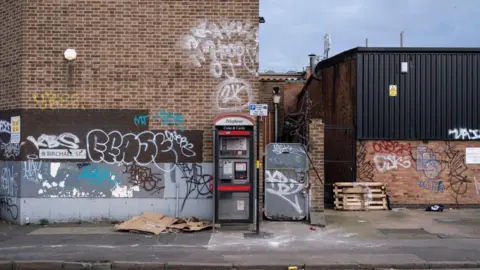 Getty Images
Getty Images
Conservative MP Neil O'Brien has set out a list of policies to make Britain "vaguely civilised again" including "large and instant fines" for passengers playing music on public transport and a "crackdown on spitting".
The Leicestershire MP also called for action to stop e-scooters being " dumped across pavements" and a push to plant trees on every residential street "where this is remotely possible".
O'Brien was a minister in the previous Conservative government and is an influential thinker in the party, as the former head of the Policy Exchange think tank.
In a Substack article, O'Brien argued the desire to live in a "civilised, orderly society" was "one of the most under-discussed and under-appreciated things in politics".
"It is something often promised by politicians - but in my lifetime it has not been delivered."
O'Brien said politicians on both the left and the right were "culpable" and criticised his own party for failing to deliver on promises and prioritising "other things more".
"We cut police numbers then restored them; lost prison officers, then rehired less experienced ones; and we didn’t deal with the prolific offenders who cause so much misery."
However, he also said he did not "believe for one second the current government has what it takes to make this country more orderly".
His list of proposals include:
- Action to stop e-bikes and scooters being ridden on pavements
- An end to 'street scars', where gaps in street paving are replaced with tarmac
- A "galvanising" national goal to reduce the amount of litter
- Councils to sort dumping of fridges, mattresses and broken cars
- Action to stop phone boxes and street furniture being covered in graffiti
Speaking to the BBC, O'Brien singled out street artist Banksy for criticism. He said his work was "valorising" graffiti.
"Graffiti is not art, it's a massive nuisance, it creates a really disorderly atmosphere.
"People have done everything they can to make their place, perhaps a business or shop, nice then some moron sprays paint all over it."
He said his list was inspired by comments from his constituents and the ideas "tap into things a lot of people are thinking".
The Harborough, Oadby and Wigston MP did not say if he thought his manifesto could have won his party the last election but hoped the Conservatives would "pursue this agenda" in opposition.
In his article, O'Brien argued having a "pleasant, civilised nice place to live" was an end in itself.
However, he also said there was good evidence a disorderly society leads to "crime and really serious disorder".

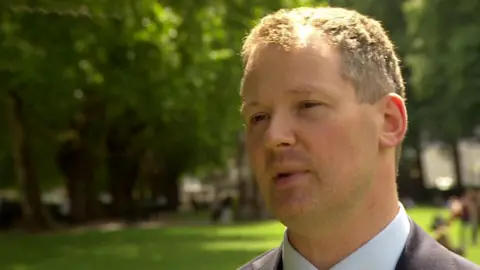
Neil O'Brien is a former adviser to George Osborne
Matt Ashby, a crime science lecturer at University College London, says many of the actions O'Brien proposes would require "substantial investment in public services".
"The question is where would that money come from?"
He said the most effective way to tackle anti-social behaviour was probably to catch offenders in the act, something that would require more police officers.
But, he added, politicians usually prefer to opt for the "cheaper" option of increasing the severity of the punishment, such as fines, rather than employing more officers to enforce the rules.
O'Brien acknowledged in his piece that the Conservative-led government cut the number of police and although the overall levels were later restored, Ashby says cuts to Police Community Support Officers (PCSOs) were not.
"Compared to 2010, right now we only have 44% of the PCSOs."
"That's particularly important for anti-social behaviour - anti-social behaviour is what PCSOs were focused on."
'Broken windows'
O'Brien's argument that low-level disorder can lead to more serious crimes stems from the Broken Windows Theory first put forward in a US magazine article in 1982.
Academics James Wilson and George Kelling argued police departments could prevent more serious crime by tackling low-level crime, such as window-breaking.
The theory was taken up enthusiastically in the early 1990s by then-New York Mayor Rudi Giullani, who was later able to point to a massive drop in crime, including a 70% decline in murder rates.
However, critics have pointed out decreases mirrored a general fall in crime not just in the US, but across the western world.
There have also been concerns the tough approach damages relations between communities and law enforcement.
'Eyes and ears'
Earlier this year, the then-Conservative government announced £66m for police forces in England and Wales to "ramp-up" patrols in "hotspot" areas with high levels of violence and disorder.
It followed pilots in 10 areas including Brunswick, Lancashire and Southend, Essex.
Since being elected, the Labour government has said it would introduce "respect orders" designed to ban persistent anti-social offenders from town centres.
Labour has also promised to bring in an extra 13,000 police officers who would be the "eyes and ears" of local communities.
Addressing a policing conference earlier this week, Home Office Minister Diana Johnson said: "Anti-social behaviour is not merely a low-level nuisance.
"It hits the poorest and most vulnerable communities hardest and, if left unchecked, leads to more serious offending."
The Crime Survey for England and Wales estimates 25% of people perceive anti-social behaviour to be a fairly or very big problem in their local area and 8% think their neighbourhood has a high level of anti-social behaviour.
These levels have remained consistent over the past decade.

 5 months ago
25
5 months ago
25
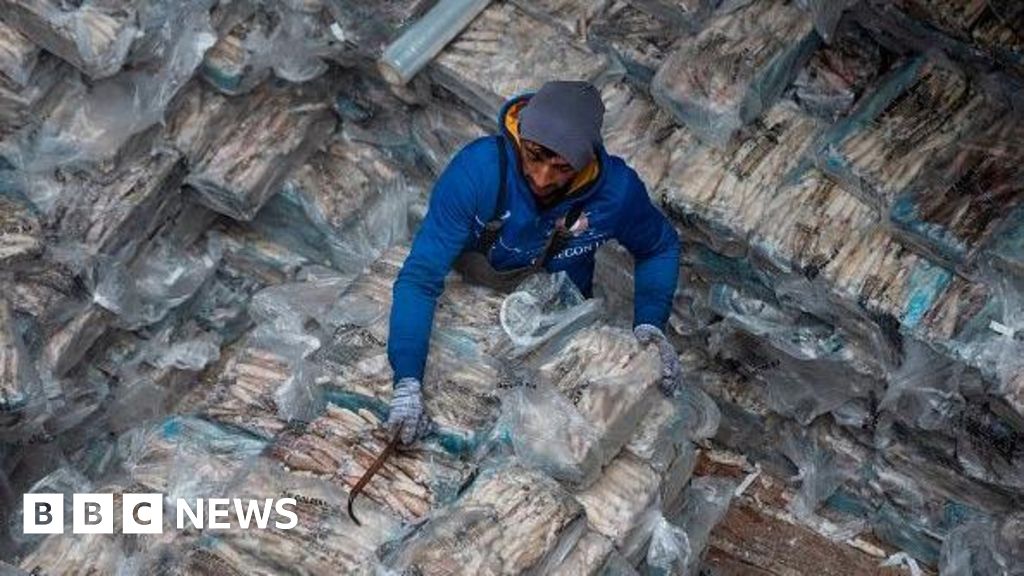
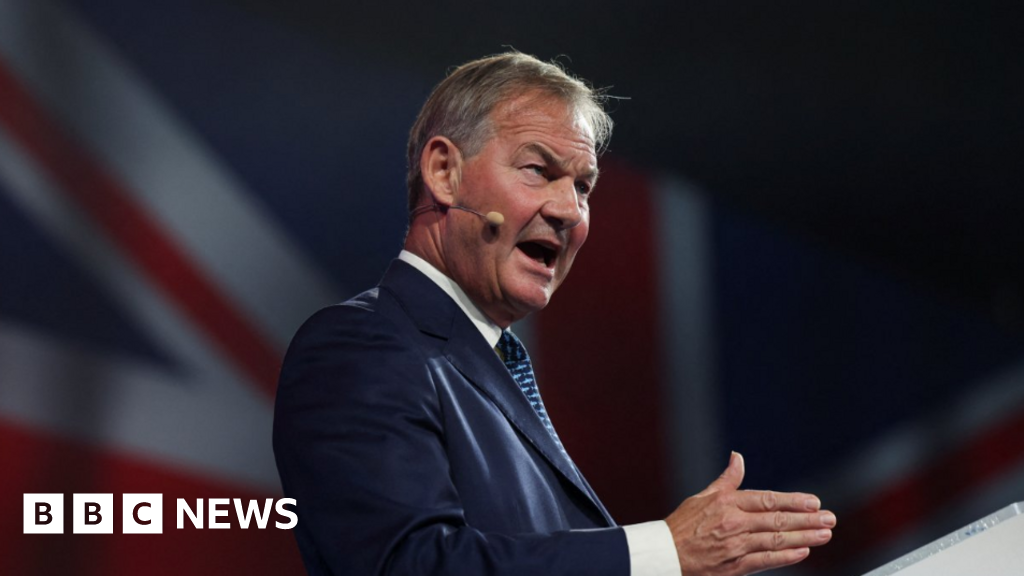
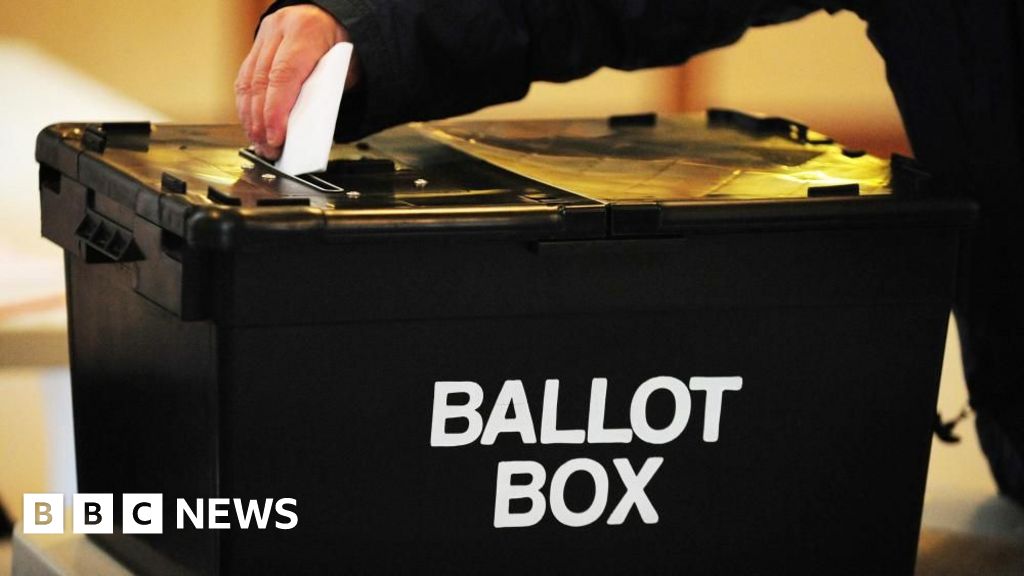





 English (US) ·
English (US) ·